A Brief History of the Tire
 technology, the tire has an interesting history of advances and failures.
technology, the tire has an interesting history of advances and failures. What's Leaking From My Car?
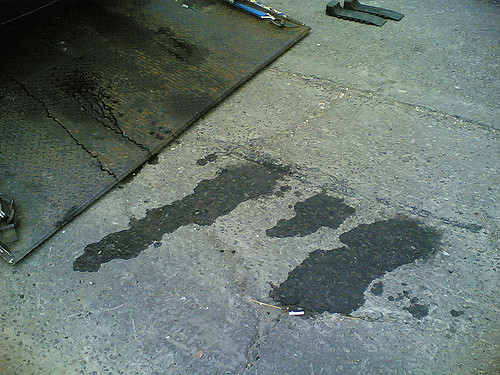 feeling. What could it be?
feeling. What could it be? A/C Problems Demystified
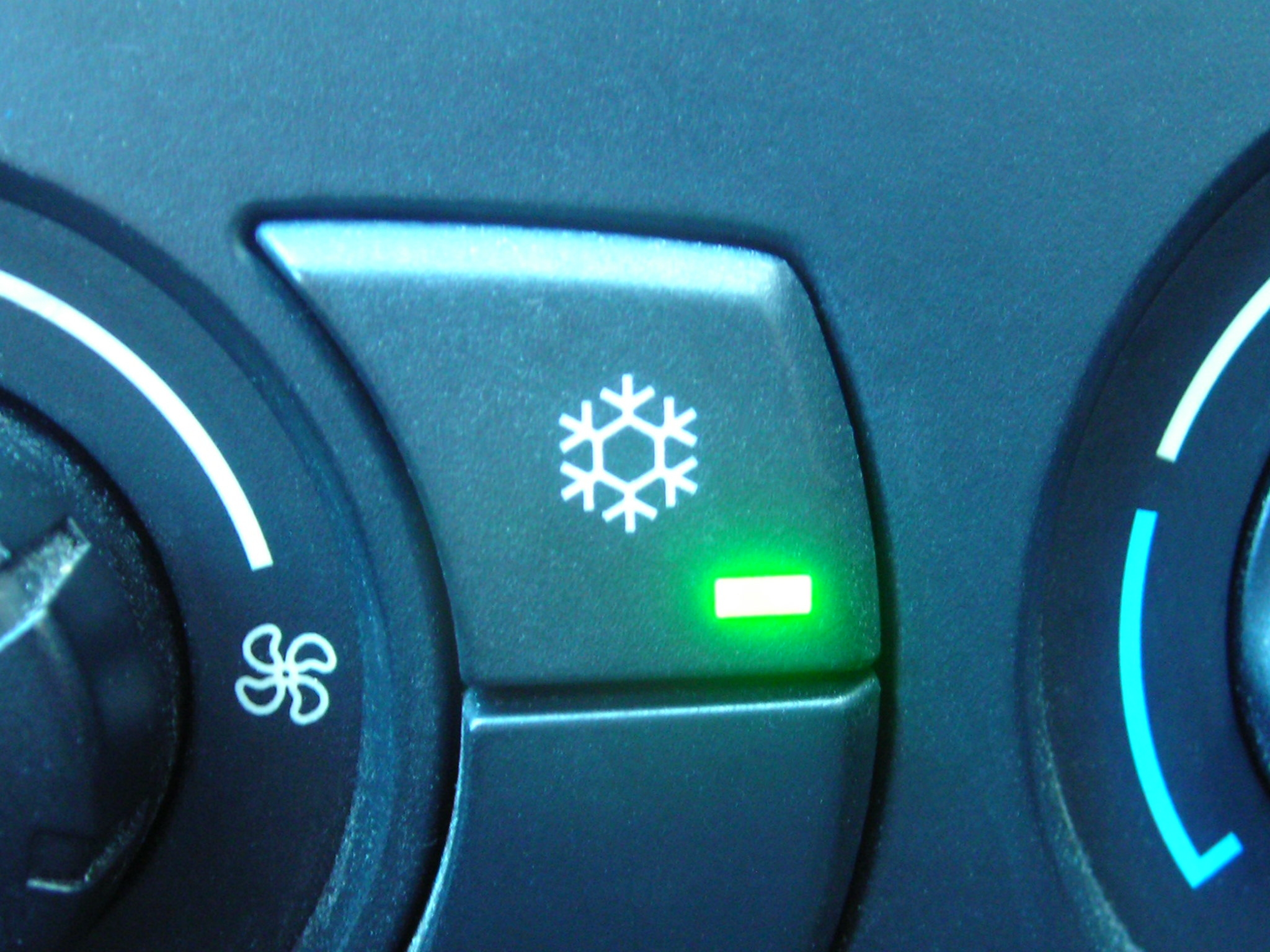
- Compressor
- Condenser
- Receiver/dryer
- Thermostatic expansion valve
- Evaporator
- Refrigerant
- Blower
So You Get A Flat Tire...What Now?
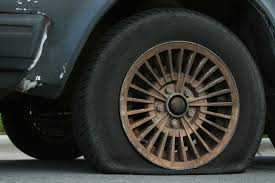 Nobody ever looks forward to a flat tire, and nobody ever says "well, that was a really good time" after having one. You can at least minimize the damage to your tire and danger to yourself, though.
Nobody ever looks forward to a flat tire, and nobody ever says "well, that was a really good time" after having one. You can at least minimize the damage to your tire and danger to yourself, though.
Flats vs Blowouts
If you get a blowout, you'll know about it right away. Sometimes the tire can fail dramatically, with a bang as loud as a shotgun going off. Other times, it might just be a loss of air and a sudden change in your car's handling, followed by vibration, noise and a pull to one side. If it's a front tire that fails, your car might be a real handful to drive until you can get to a stop.
In either case, your first job is to pull off the road as quickly (but safely!) as you can. Don't jam on the brakes or make any sudden mo ...[more]
Regular, Synthetic or Blend...What Kind of Oil Do I Need?
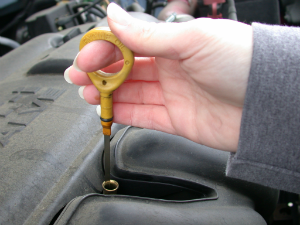 At one time, there were only a couple of choices for motor oil. Today, that is no longer the case, and hasn't been for quite some time. Here's a quick breakdown of what you need to consider when it's time for an oil change:
At one time, there were only a couple of choices for motor oil. Today, that is no longer the case, and hasn't been for quite some time. Here's a quick breakdown of what you need to consider when it's time for an oil change:
- Viscosity: Viscosity is how thick your oil is, and how it retains its pour properties at various temperatures. In this respect, synthetic oil is far superior. Conventional oils will thicken in cold weather and thin out when very hot, while the viscosity of synthetic is much more uniform. Check your owner's manual -- many newer models require a thinner, lower-viscosity oil, which also helps the engine run more efficiently. Viscosity is expressed as a numerical value -- the lower the number, the thinner the oil. Many are designed to work a ...[more]
The Latest in Green Tech Innovations for Tires
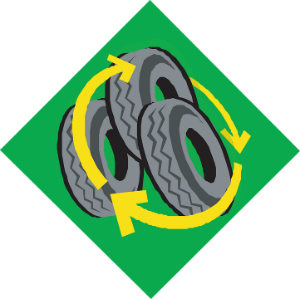 When it comes to your car, oil isn't the only thing there's a finite supply of. Rubber has its limits too, and it's estimated by 2020, the supply of natural rubber in the world may be outstripped by demand. And of course, tires require a great deal of oil to produce as well. Tire manufacturers are constantly looking for ways to innovate and conserve resources in tire production. Here are some recent advances:
When it comes to your car, oil isn't the only thing there's a finite supply of. Rubber has its limits too, and it's estimated by 2020, the supply of natural rubber in the world may be outstripped by demand. And of course, tires require a great deal of oil to produce as well. Tire manufacturers are constantly looking for ways to innovate and conserve resources in tire production. Here are some recent advances:
- Dandelions: Yes, those humble yellow flowers you try to eliminate from your yard. Dandelions actually contain a minute amount of latex in their milky oil, and research shows they can actually produce about as much latex, pound-for-pound, as rubber plants. German scientists have cultivated 1-foot-tall dandelions for just this purpose. This isn't a new development, either -- in WWII, Amer ...[more]
4 Things About Tires You May Not Have Known
Tires all look sort of the same…round and black…and people tend to think tires don’t change much over the years. That’s really not true, though – engineers and designers are constantly working on advances in tire designs for more miles, better fuel economy and better performance.
Here’s a rundown of current trends in tire technology you may not have been aware of:

- Tall, skinny tires are coming back. If you’ve ever ridden a beach cruiser bike vs. a racing bike, you know that skinny tires have lower rolling resistance. Carmakers are going in that direction, too – the BMW i3 electric/plug-in hybrid uses Bridgestone Ecopia tires, with higher inflation pressure and a taller, skinnier profile. Tall, skinny tires also redu ...[more]
Cars That Last 250,000 Miles or More
 If you’re old enough, you probably remember the cars from the late 70s and early 80s that weren’t good for much more than 120,000 miles before they started to develop real problems and were junkyard bound. Today, thanks to improvements in design, metallurgy, manufacturing techniques and machining, those days are over and it’s not at all unusual to see vehicles with well over 200,000 miles on the odometer and still running strong.
If you’re old enough, you probably remember the cars from the late 70s and early 80s that weren’t good for much more than 120,000 miles before they started to develop real problems and were junkyard bound. Today, thanks to improvements in design, metallurgy, manufacturing techniques and machining, those days are over and it’s not at all unusual to see vehicles with well over 200,000 miles on the odometer and still running strong.
Here’s a quick rundown of some vehicles to consider which have a track record of being good for 250k miles or more:
- Toyota Corolla: Probably not a surprise to fans of Toyotas, the simple, no-frills Corolla hasn’t changed much since the early 00s…but Toyota’s approach to the tried-and-true Corolla ...[more]
Self-Inflating Tires…Soon To Be A Reality?
Driving around on underinflated tires is just a bad idea all the way around. Underinflated tires increase a car’s rolling resistance, meaning a drop in fuel efficiency since it takes more energy to move the vehicle down the road.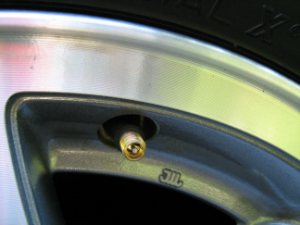
A single tire that’s down by ten pounds of air means a 3.3 percent drop in fuel economy…multiply that by all four tires, and you can figure on giving up ten percent of your gas mileage. The added friction and rolling resistance also means more heat is generated, and heat is the enemy of the internal structure of a tire. That heat will damage a tire to the point of failure. Studies show that underinflated tires are a full 25 percent more likely to fail, and at least half of one-car accidents involve a tire problem as a factor. And still, it’s estimated ...[more]
Questions You Shouldn’t Be Afraid to Ask Your Auto Repair Tech
Often, drivers are mystified by how their cars actually work. It’s to be expected. Even an older car is a complex machine with many sub-assemblies that all work together to move it down the road.
As a result, drivers tend to be a little intimidated by auto repair and often tend to not inform themselves by asking the necessary questions of a tech or a garage. Too often, that ends up being a big mistake. Here are some examples of the kinds of things you really should know before any auto repair work starts:
- Does your shop work on any kind of vehicle? Of course, most shops can service a product from GM, Ford, Chrysler, Nissan, Toyota and the other leading makes. Some makes, however, require a lot more training and experience, o ...[more]
| << Previous | 123 | Next >> |



